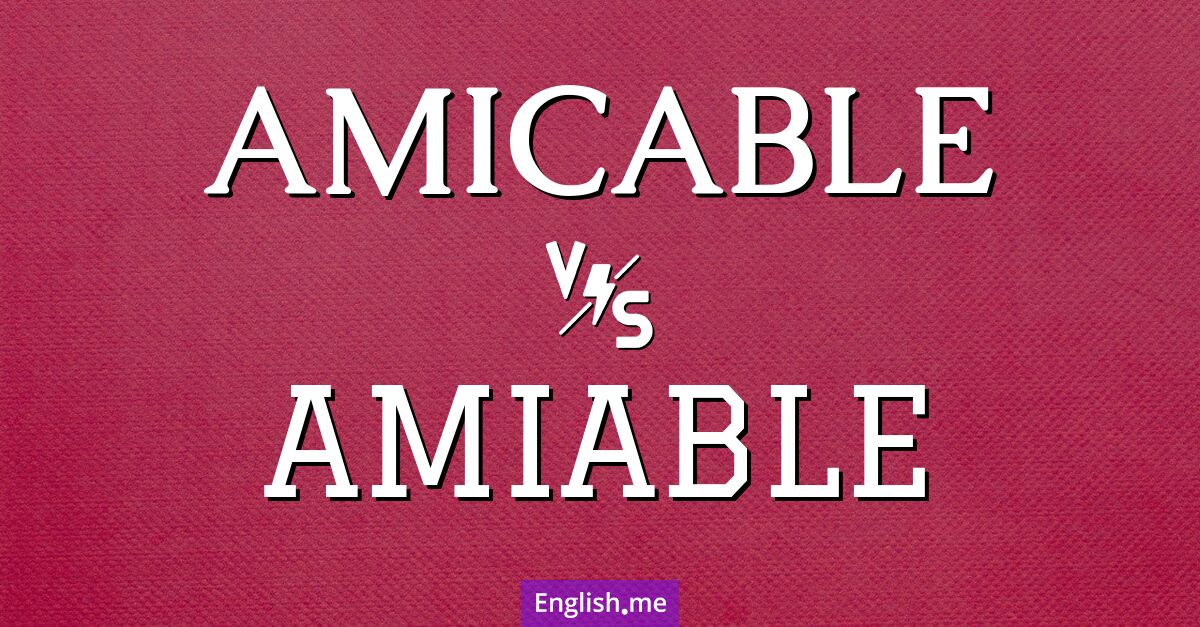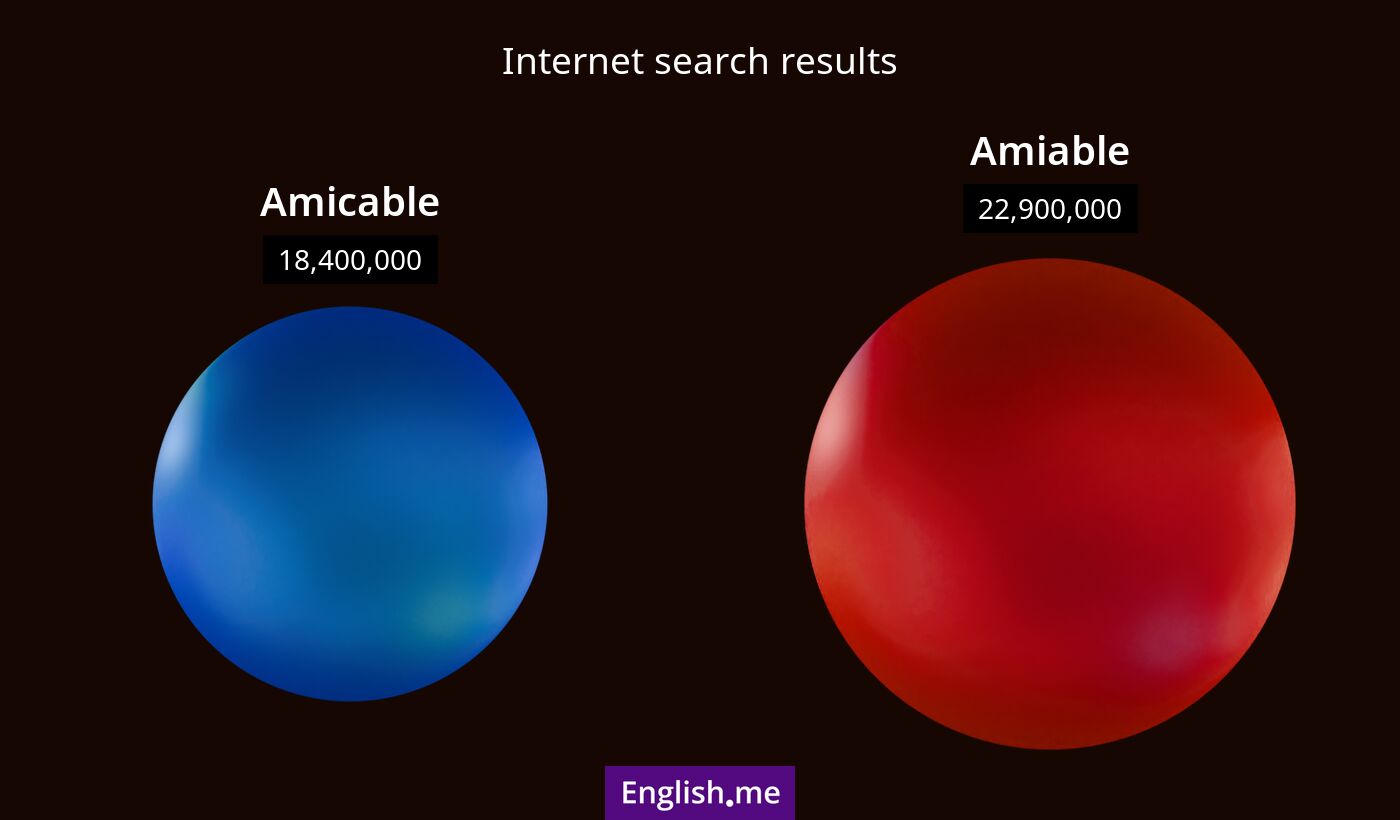"Amicable" vs. "amiable": a friendly comparison
Reviewed and edited by  Lloyd Cooper 17/11/2024, 19:26
Lloyd Cooper 17/11/2024, 19:26
English.me team member

 What is similar?
What is similar?
Both "amicable" and "amiable" are adjectives derived from the Latin word "amicabilis", meaning friendly. They both pertain to friendliness and good nature.
 What is different?
What is different?
The word "amicable" typically refers to relationships or agreements that are friendly and cooperative despite potential differences. "Amiable" describes a person's pleasant and friendly nature.
 Which one is more common?
Which one is more common?

 Examples of usage
Examples of usage
Amicable- Their discussion was heated, but they reached an amicable agreement.
- The two countries maintained an amicable relationship despite their past conflicts.
- We decided to go our separate ways in an amicable manner.
- She always had an amiable smile for everyone she met.
- His amiable nature made him well-liked among his peers.
- Despite the stress, he remained amiable and easygoing.

 English
English español
español française
française italiano
italiano deutsche
deutsche 日本語
日本語 polski
polski česky
česky svenska
svenska Türkçe
Türkçe Nederlands
Nederlands